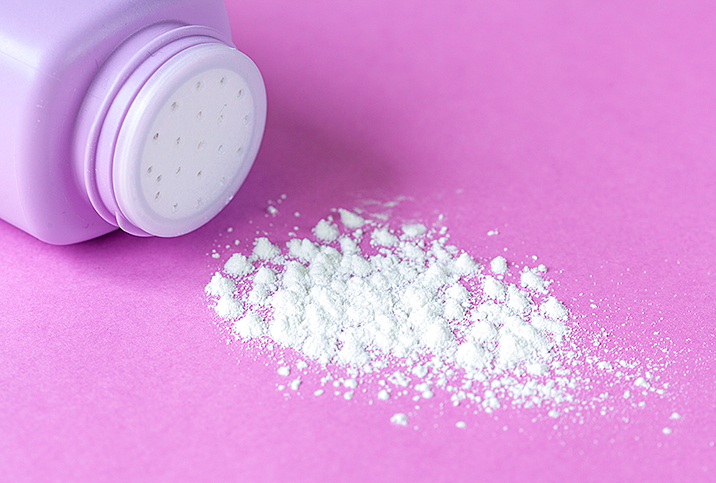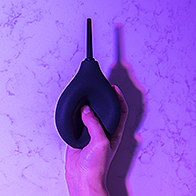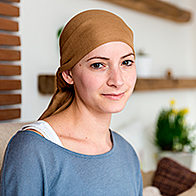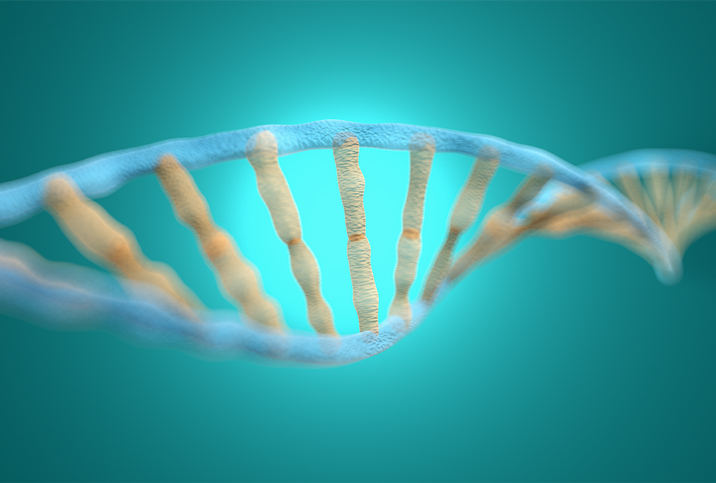The Connection Between Baby Powder and Ovarian Cancer

Ovarian cancer is the rarest and deadliest form of cancer affecting the reproductive system. It's estimated that 21,410 women in the United States will receive a diagnosis of ovarian cancer this year. Of those women, approximately 13,770 will die.
Ovarian cancer cases declined by 29 percent from 1985 to 2014, and although there is no clear explanation for the decline, it is positive news. However, early detection is key. Reporting any new symptoms and having regular checkups can help prevent a late diagnosis.
Can baby powder cause ovarian cancer?
Baby powder contains talc, also called talcum powder, which is a mineral used in some cosmetic and personal hygiene products. In its natural form, talc contains asbestos.
Asbestos is carcinogenic and presents a huge risk to the public. This is not a new concern—there have been issues raised since the 1970s. Since then, talcum-containing products have been declared asbestos-free.
However, a 2020 study by the Environmental Working Group and a 2019 study by the U.S. Food and Drug Administration (FDA) found asbestos still present in up to 20 percent of products tested, including Johnson's Baby Powder.
In 2019, in response to the FDA's findings, Johnson & Johnson, the owners of Johnson's Baby Powder, voluntarily recalled a single lot of its product. Later that year, Johnson & Johnson claimed their talc was safe after third-party testing showed no asbestos present in the samples taken.
'Talc has been shown to cause inflammation, and take a long time to break down, meaning the effect can last a long time.'
Further to that, a 2020 study involving more than 250,000 women concluded there was no significant link between talcum powder and ovarian cancer.
"Personal care powders contain varying amounts of talc. Some products may also be contaminated with asbestos, particularly those sold before 1976," said Katie O'Brien, Ph.D., a staff scientist in the Epidemiology Branch of the National Institute of Environmental Health Sciences and one of the primary researchers in the 2020 study. "However, none of the studies asked women to identify what specific types or brand names of powder they used, so we are not able to isolate the possible effects of a specific type of powder or ingredient within that powder."
However, another study conducted in 2020, which examined tissue from patients with ovarian cancer, suggested that talc particles can be absorbed by female organs and increase the risk of ovarian cancer.
"Talc has been shown to cause inflammation, and take a long time to break down, meaning the effect can last a long time," said Tara Scott, M.D., who is board-certified in OB-GYN, functional medicine and integrative medicine, and founder of Revitalize.
While baby powder was originally used to prevent diaper rash in infants, it also became popular among women for use around their genitals to prevent and conceal odors. But baby powder can affect the natural pH of the vagina, making it susceptible to yeast infections.
It's important to remember that sweating can occur anywhere on the body, particularly surrounding the vagina, and that is completely normal. Using powders or other products, or practicing douching, often does more harm than good, and should be avoided.
"I generally recommend patients do not use [baby powder]," said Scott.
O'Brien agreed there are no long-term health benefits of using baby powder on the genitals. Therefore, any women who are concerned about the risks should discontinue use or decrease how often they are using it.
Risk factors for ovarian cancer
It's unknown what causes ovarian cancer, but there are factors that can increase the risk of developing the disease. The main risk factor is age, as more than half of women who are diagnosed are over the age of 63. While some women under the age of 40 can develop ovarian cancer, this is considered extremely rare.
Genetics can play a huge role, too. If you have a close relative who has had ovarian cancer, this puts you at a higher risk of developing it at some point in your life. This is due to genetic mutations, such as BRCA1, which is believed to increase your risk by 35 percent to 70 percent.
If you have had other types of cancer in the past, such as breast cancer or endometrial cancer, this can put you in the higher risk category, too.
If you are at high risk of developing ovarian cancer or you are concerned in any way, you should discuss this with your doctor. They may consider BRCA testing.
Maintaining a healthy diet and lifestyle is very important in helping prevent a wide range of cancers.
Your risk of developing ovarian cancer increases with age, which is one factor you can't change. But there are some steps you can take to help prevent ovarian cancer.
Maintaining a healthy diet and lifestyle is very important in helping prevent a wide range of cancers. According to Cancer Research UK, excess body weight is linked to a higher risk of ovarian cancer. Meanwhile, two 2016 studies, published in Cancer Epidemiology, Biomarkers & Prevention and the British Journal of Cancer, found that, regardless of weight, women who did not engage in regular physical activity were more likely to develop and die from ovarian cancer.
Additionally, studies in the American Journal of Clinical Nutrition and Nutrition and Cancer found that a "diet characterized by high meat and fat intake may increase the risk of epithelial ovarian cancer." Smoking is also linked to various cancers, so avoiding firsthand and secondhand smoke is necessary for your health.
Studies have found using oral contraceptives, having your tubes tied and getting a hysterectomy can lessen your risk of developing ovarian cancer. However, these options should always be discussed thoroughly with your doctor before making an informed decision.




















